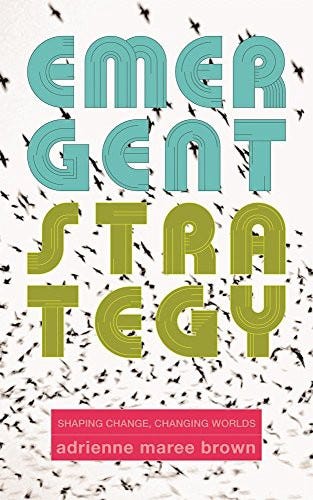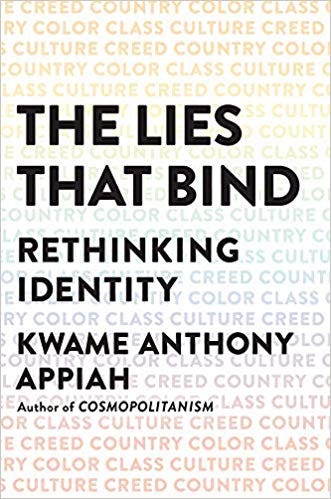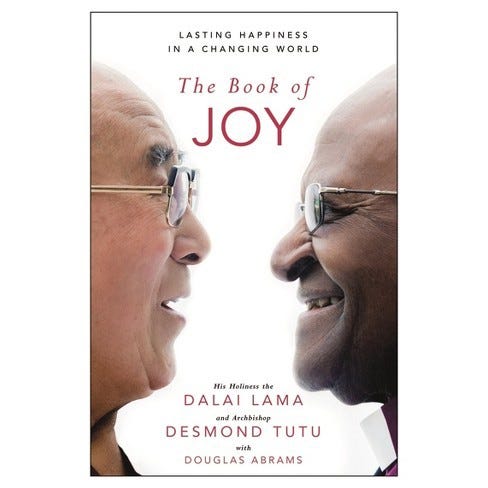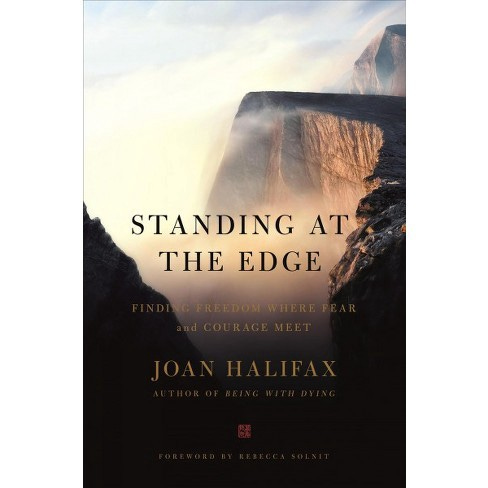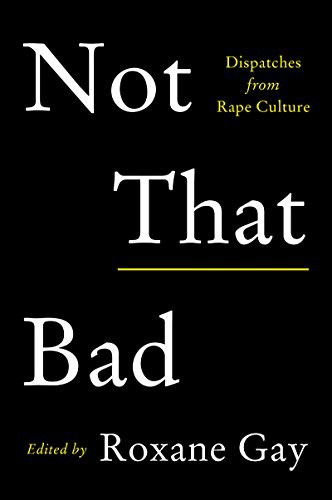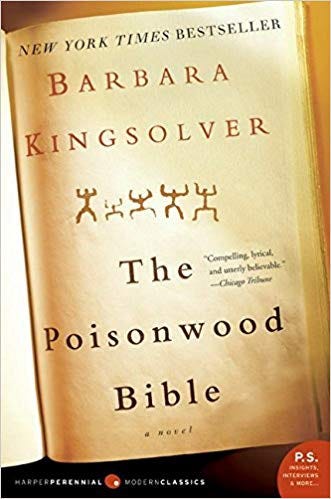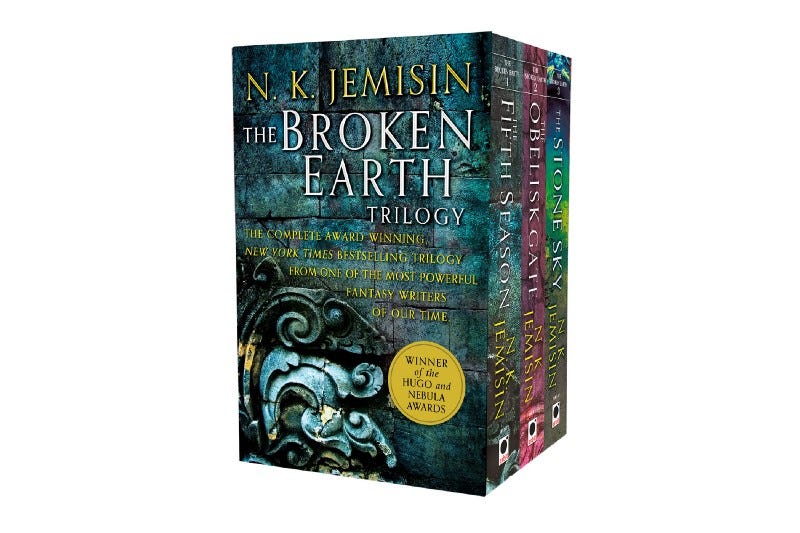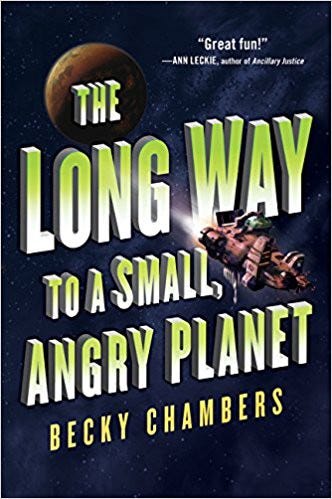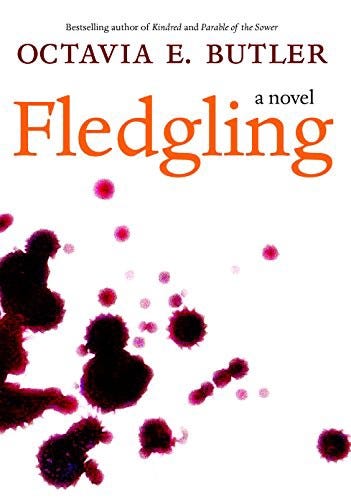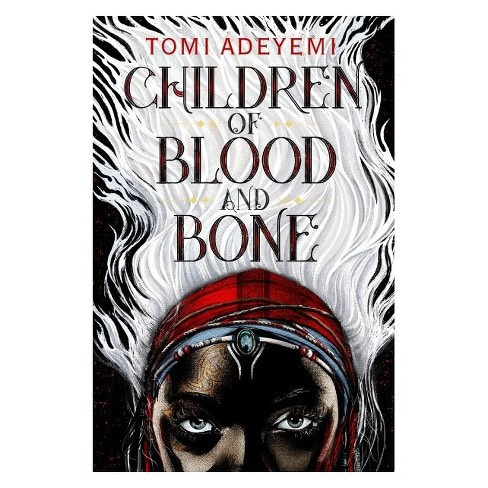For more recommendations, check out my 2020 book blog.
Time again for another installation of Book Recommendations from the last year of books I read. I first wrote a blog like this in 2017 as a response to the many, many lists I’d see of 50 or 100 or 500 books Everyone Must Read, apparently. There are so many reasons why reading isn’t a priority for folks, and a lot of books that get on those lists just aren’t that great.
For me, reading is what I do for fun. It’s my downtime, my hobby, the one thing I do just for the pleasure of it. Each year I track what I’ve read and at the end, I can look back and name a few books that I think almost anyone would enjoy—books that are life-changing, profound, changing the game, or just downright fun.
This year I offer ten books total, five fiction, five non-fiction. If you only read five books in 2019, any one of these ten should be among them. In the case of the non-fiction books, if you don’t have the time to read one but you’re interested in the topic or the author’s work elsewhere, I have included links to podcasts, transcripts, and videos featuring the same content. I’ve also included links to each book on the publisher's website whenever possible, but remember your local library as a resource for checking these out. Libraries are great!
NON-FICTION
Emergent Strategy — adrienne maree brown
Normally I do not rank these. The order is arbitrary, but in the case of Emergent Strategy, this really was the very best book I read in 2018 and it’s in my top five Most Important, significant, transformative books ever. adrienne maree brown has created a genuine gift for any human being who wants to be a force for liberation and transformative change. She herself acknowledges that the concept is not new, but I would say her presentation of it most certainly is.
This book is an accessible, practical guide to living in an interconnected, interrelated, interdependent world. It is a dharma book, a practice guide, and a toolkit. It’s galvanising, uplifting, and empowering. If you are a helping professional, an employee or volunteer with a non-for-profit/charity, a manager, a director, a spiritual being, a member of a religious organisation, an activist, a speaker, a movement leader or participant, a connector, an artist and/or writer, this book is worth reading.
I have gifted seven copies of it in just five months. That’s how amazing this book is.
In addition to writing amazing books, and a bunch of other skills and talents, adrienne is also the co-host of How to Survive the End of the World with her sister, Autumn Brown. I also want to thank adrienne for making the time to collaborate with me on an episode of Everything is Workable in 2018!
The Lies That Bind: Rethinking Identity — Kwame Anthony Appiah
This is a delightful and easy to follow philosophical book unpacking identity across religion, location, class, race and gender. Professor Appiah uses wonderful examples throughout to illustrate the mutable nature of identity, whilst also pointing out how mutability does not render identity meaningless. In this regard, reading along is like joining someone in a contemplation on emptiness. He names an identity and proceeds to unpick it, sharing with us how we can let go of fixed ideas about who a person is, ourselves as much as anyone else. But then he also names how relational our identities are, to one another and within ourselves, and that this shouldn’t be disregarded simply because identity is lacking in any inherent quality.
It’s a beautiful example of how we can challenge our dualistic way of thinking to open up and be inclusive of a much bigger view beyond just what we have in common or not, to seeing the full complexity of what it is to be human. This book is a marriage of the absolute and relative view, and a guide for how to look at the world through an all-encompassing lens.
I was fortunate to get to see Professor Appiah give a talk on this book at the Seattle Public Library, which published a podcast of the evening. You can listen to that or read the transcript to get a taste.
Compiled from conversations between Desmond Tutu and His Holiness the Dalai Lama in April, 2015, The Book of Joy is heartwarming, encouraging, and profound. This is unsurprising considering the two spiritual leaders and what we know of their offerings to the world, but the added piece I loved about this book is their friendship. These two men are revered — held in the highest regard by millions of people — but they remain humble, and express that through their silly antics and lighthearted banter. The way their relationship is shared on the pages is as much a gift of wisdom as their conversation on the topic of joy. It’s a reminder to all of us about the importance of human connection and what a gift it is to be fully ourselves in relationship with others.
There are many wonderful gems throughout this book, but my favourite quote comes from Archbishop Tutu:
“It helps no one if you sacrifice your joy because others are suffering.”
Because this book was compiled from a series of talks there are many videos available of the many aspects of joy they discussed. I particularly appreciate their dialogue on forgiveness.
Standing at the Edge: Finding Freedom Where Fear & Courage Meet — Joan Halifax
“Compassion does not fatigue us — it is a source of strength, and supports our thriving and benefits others.”
The teachings of Roshi Joan Halifax are rich and practical, as she brings the fullness of her personal experience to what she has to teach. She grounds the practice of compassion with lived examples, both her own and those of her students. Her guidance on how to be present when meeting our edges so we can learn to stretch and grow them is applicable to anyone, regardless of our belief or practice. This is a book of how to connect with our potential for limitless compassion.
There is a wonderful episode of the Upaya Podcast with Roshi Halifax where she outlines the key points of this book. The Upaya podcast is free, but if you are able, please make a contribution. Donations help keep these talks available to folks regardless of income. When money is a resource we have, we can gift it in this way to ensure that such wisdom remains accessible to as many people as possible.
Not That Bad: Dispatches from Rape Culture — edited by Roxane Gay
I struggled with whether or not to include this book in my top five non-fiction recommendations because it is brutal. It is brutal and raw and also true. Which is why I have chosen it. Because I wish every single human being would read it — but especially cis-male folk.
This book is a collection of personal accounts and reflections on the impact of misogyny, sexism, patriarchy, and restrictive masculinity on all genders. This is a social problem we all have a responsibility to address, and men have yet to really step-up and get on board to dismantle. This is why Roxane Gay continues to write about rape and sexual abuse. This is why Hannah Gadsby’s Nannette is so necessary, important and groundbreaking. This is why #MeToo matters.
FICTION
The Poisonwood Bible — Barbara Kingsolver
A wonderful and clever way of looking at the political, social, and economic impact of colonialism and racism in Africa. The different narratives illustrate the many perspectives and interpretations of a complex situation, while also creating a rich, engaging story. The characters are believable, and the entire story is so skillfully presented it’s the sort of thing I wish I had written myself.
The Broken Earth Trilogy—N.K. Jemisin
I know this is three books but this is three books the same way The Girl With the Dragon Tattoo is three books. You can’t finish the first and not want to immediately move to the second. These are so compelling from the first chapter right to the very end, or at least I found them to be. The world building is a work of genius and the storytelling and characters subvert every fantasy trope there is. N.K. Jemisin creates an entire planet and people so convincingly real, inclusive of the element of magic, that it was nearly impossible for me to put these books down. And this was after my wife had basically not talked to me for a week while she read them — so you think I would have been prepared to be so captivated.
The Long Way to a Small Angry Planet — Becky Chambers
I have to stop saying I’m not a fan of science fiction and start saying I adore science fiction when it’s written by women. I’ve recommended this book to so many people, loaning my own copy out several times now. The hook for folks is when I describe it as a Star Trek-like universe but super queer. This is the wholesome future I want. Seriously, it’s just magical how the other alien races look at the humans with a sweet kind of pity because we keep doing silly things like suppressing our emotions. Plus, I’m a huge fan of character-driven stories and everything Chambers writes is just that.
Normally, vampires would not be my thing, but Octavia Butler vampires are unlike any angsty, brooding vampire of this genre. In fact, this book is so far removed from the vampire canon that I wonder if Butler hasn’t created a new kind of cross-over genre. We can call it sci-fi-vampire-social commentary. This book is sexy. It’s disturbing. It’s intriguing. It is incredibly clever. I don’t think one can read this with any kind of expectation because it’s so subversive.
Children of Blood and Bone — Tomi Adeyemi
When folks learned how much I loved the Broken Earth Trilogy and Nnedi Okorafor’s Akata books, they would inevitably ask me if I had read Children of Blood and Bone. After three recommendations, I put the book on hold at the library, where I found myself 143rd in line for about fifty copies. A good sign, I would say, and indeed, it did not disappoint.
The 85th and final book I read in 2018, the intensity of the storytelling pulled me in fast and made it difficult to put this book down. This is YA, but it does not shy away from the brutal truth of oppression. It’s also well-written, a marriage of the things I liked best about both The Broken Earth Trilogy and the Akata Witch series.
For more recommendations, check out my 2020 book blog.
Visit www.KaitlynSCHatch.com to see more of my work in the world, including the podcast Everything is Workable, a collection of my artwork, and the books I’ve written.
~~~
This blog was originally published on Medium.



